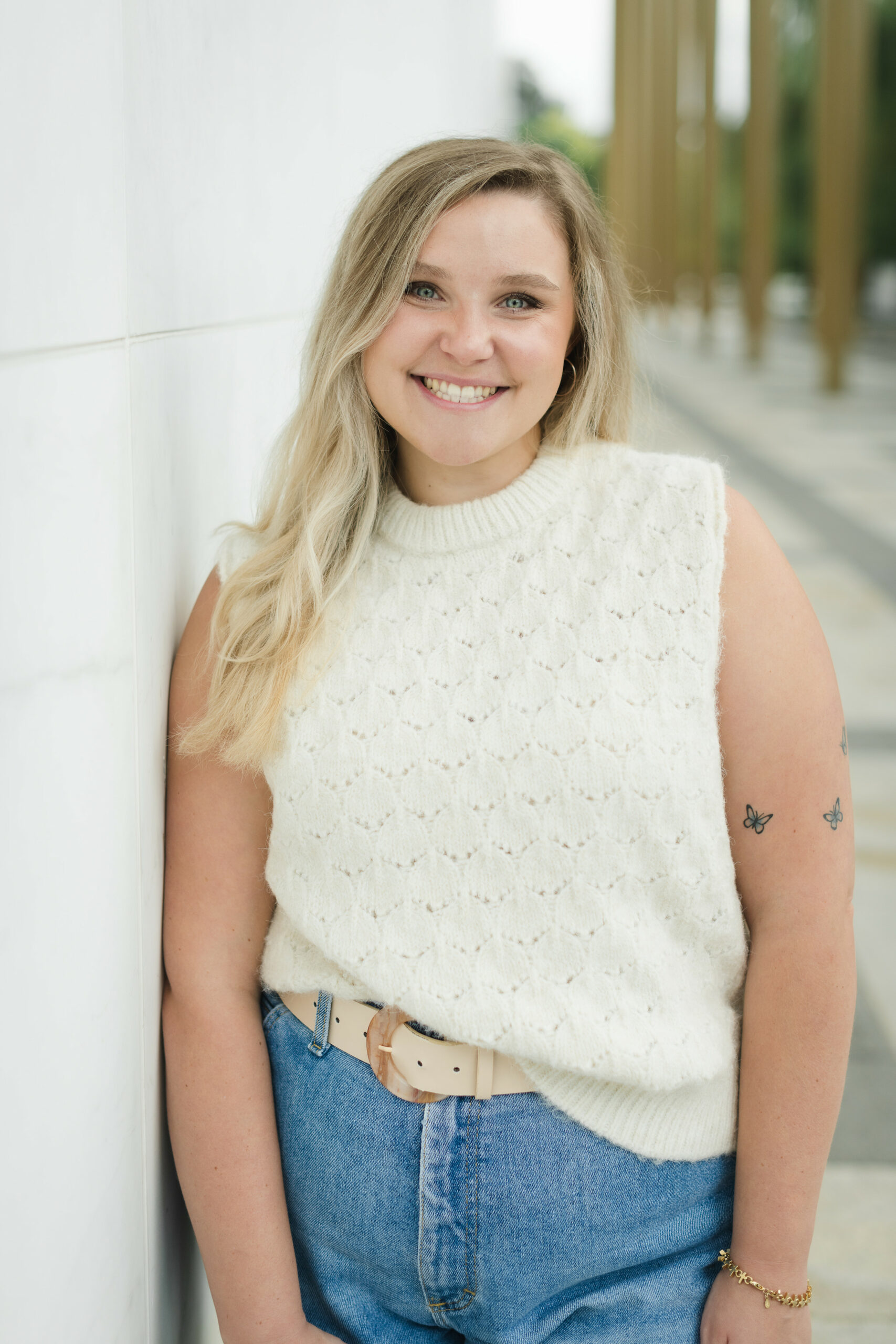Raise your hand if the idea of meal planning feels exhausting! Maybe you’ve tried meal prepping before, but found it reminded you too much of past dieting experiences. Or it reminded you of that “Sunday meal prep” mentality (If you know, you know). I completely understand how hard it can be to not only plan meals, but to also make sure you are fueling your body properly.
In this blog, I am going to provide 3 tips for your binge eating disorder recovery meal plan. Binge Eating Disorder, as discussed in my recent blog “How to Stop Binge Eating,” should be addressed from both a physical and psychological framework. Here are some ways to address both.
1. Navigate your Plate
As you are starting to think about your food intake, the first thing I would encourage you to ask yourself is “am I eating enough?” Contrary to what you might think, binge eating is a restrictive eating disorder. Binging is a survival response to food restriction, which means we want to address both the restriction and the binge eating. Here are a few ways to make sure you are nourishing your body:
- Eating food consistently throughout the day. This often looks like 3+ meals and several snacks in between.
- Don’t go for long periods of time without food. Research shows that eating every 3-4 hours (at a minimum) helps our brain and body stay nourished and reduces eating disorder behaviors.
- Filling your plate or bowls with food. I always say “I am sure your plates are beautiful AND let’s aim to see more food than the plate!” I love the plate visuals used in the Plate-by-Plate approach.
- Having a variety of carbohydrates, fats, and proteins in your day. Your body’s preferred source of fuel is carbohydrates so having these are each meal is important.
2. Incorporate all Foods!
Binge eating can be followed by feelings of guilt and shame with food. Diet culture tells us that we should avoid or limit certain foods, which can create an unhealthy relationship with them. However, ALL foods have a place in our diet and we should not feel guilty about the foods we love or want to eat. You may find that you binge on or feel like you can’t “trust” yourself around certain foods that you have been told are “bad.” Giving yourself unconditional permission to eat these foods is part of neutralizing your relationship with them.
When meal planning, add the foods you genuinely love or crave into your day. For example, if you love chocolate add it to your meals and snacks throughout the day. Unconditional permission means there are no rules around when or how much food you can have.
An eating disorder dietitian can help you add in these foods in a way that feels safe to you while gently challenging your eating disorder.
3. Plan Ahead
It might feel counterintuitive to think about planning out your meals and snacks while in recovery. “Emilee, aren’t we trying to move away from that?” Well, yes and no. It’s important that everyone, whether in recovery or not, have an idea of how they are going to nourish their body that week or day.
When in recovery from binge eating disorder, your body feels that food is scarce. So not only does your body need food consistently throughout the day, but your brain also needs to know that food is accessible.
Some of my favorite tips for planning meals ahead of time or keeping food accessible include:
- Keeping snack items with you at all times. Ex: At your desk, in the car, or in a book bag on the go.
- Consider what food items you have to make meals at the beginning of the week and/or day. Ask yourself “Do I have what I need or do I need to go pick something up?”
- Keeping frozen or ready-made foods on hand
- Save your favorite takeout meals in your notes app or on your food delivery app. This way if you decide delivery is best for you, you have a quick way to get a favorite meal
Side note: Not all food has to be planned. We want to make sure you have what you need. There is always room for flexibility with food!
Final Thoughts on Creating a Binge Eating Disorder Meal Plan
Thank you for reading our resource on 3 Tips for Your Binge Eating Disorder Recovery Meal Plan. It can be hard to step out of the binge and restrict cycle. For folks with Binge Eating Disorder or who experience binge eating, your nutrition needs are not a “one size fits all.” These are just some nutrition recommendations to consider when healing your relationship with food. Meal planning can be a helpful way to stay nourished and connected with food. An anti-diet dietitian can help you explore this in a non-obsessive or rigid way.
Additional Resources:
How To Stop Binge Eating: https://couragetonourish.com/how-to-stop-binge-eating/
Non-Diet Meal Planning: https://couragetonourish.com/non-diet-meal-planning/
BED Recovery Meal Plan: https://www.tapestryrecovery.com/resources/bed-recovery-meal-plan/
Plate By Plate Approach: https://www.platebyplateapproach.com/
Contact Us
Courage to Nourish is a group of eating disorder specialized dietitians. We have in person locations in Alexandria, Virginia, Columbia, Maryland. and College Park, Maryland. We offer virtual services across the state of Virginia, Washington DC, Pennsylvania, and Colorado. We offer individual nutrition therapy. As well as support groups. We would love to guide you in building a better relationship with food.
Emilee Young, RD, LD, is an eating disorder dietitian who serves Alexandria, VA, Richmond, VA, Charlottesville, VA, Norfolk, VA, Virginia Beach, VA and Roanoke, VA. She provides in person services in our Alexandria, VA office and virtual services elsewhere. Emilee also sees clients who live in Maryland and DC.
Contact us for more information. And to schedule a discovery call. Also, sign up for our client or clinician newsletter!
Take one of our eating disorder quizzes:

I am a Registered Dietitian dedicated to helping those in recovery. I enjoy helping individuals work towards body acceptance and find food freedom. I am a fat-positive and anti-diet dietitian practicing from an intuitive eating lens. I enjoy working with folks who struggle with binge eating disorder (BED). I serve clients virtually and in person throughout DC and Maryland. Growing up in Virginia, I am passionate about supporting clients throughout the greater areas of Richmond, Virginia Beach, Charlottesville, and Roanoke.


